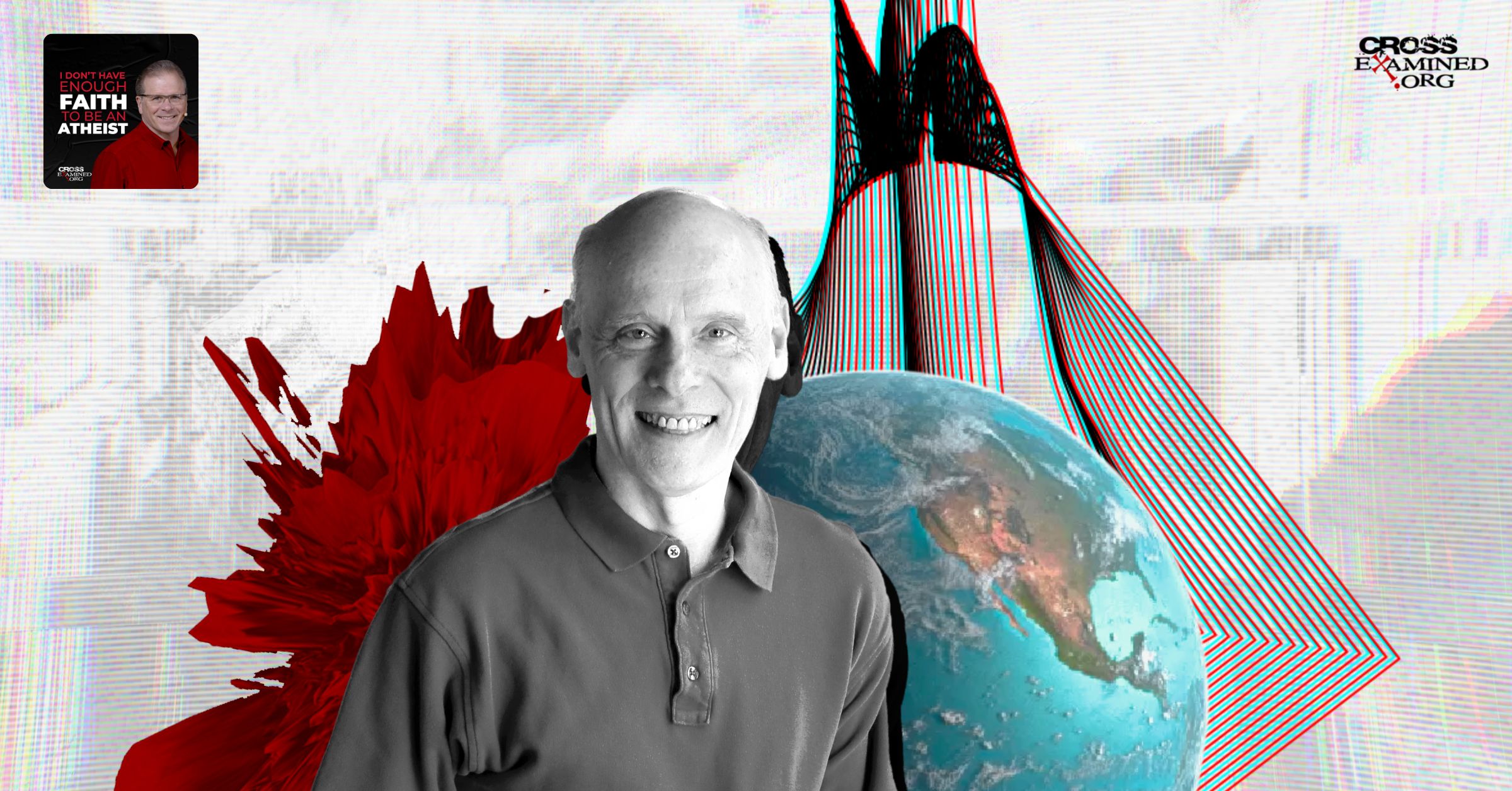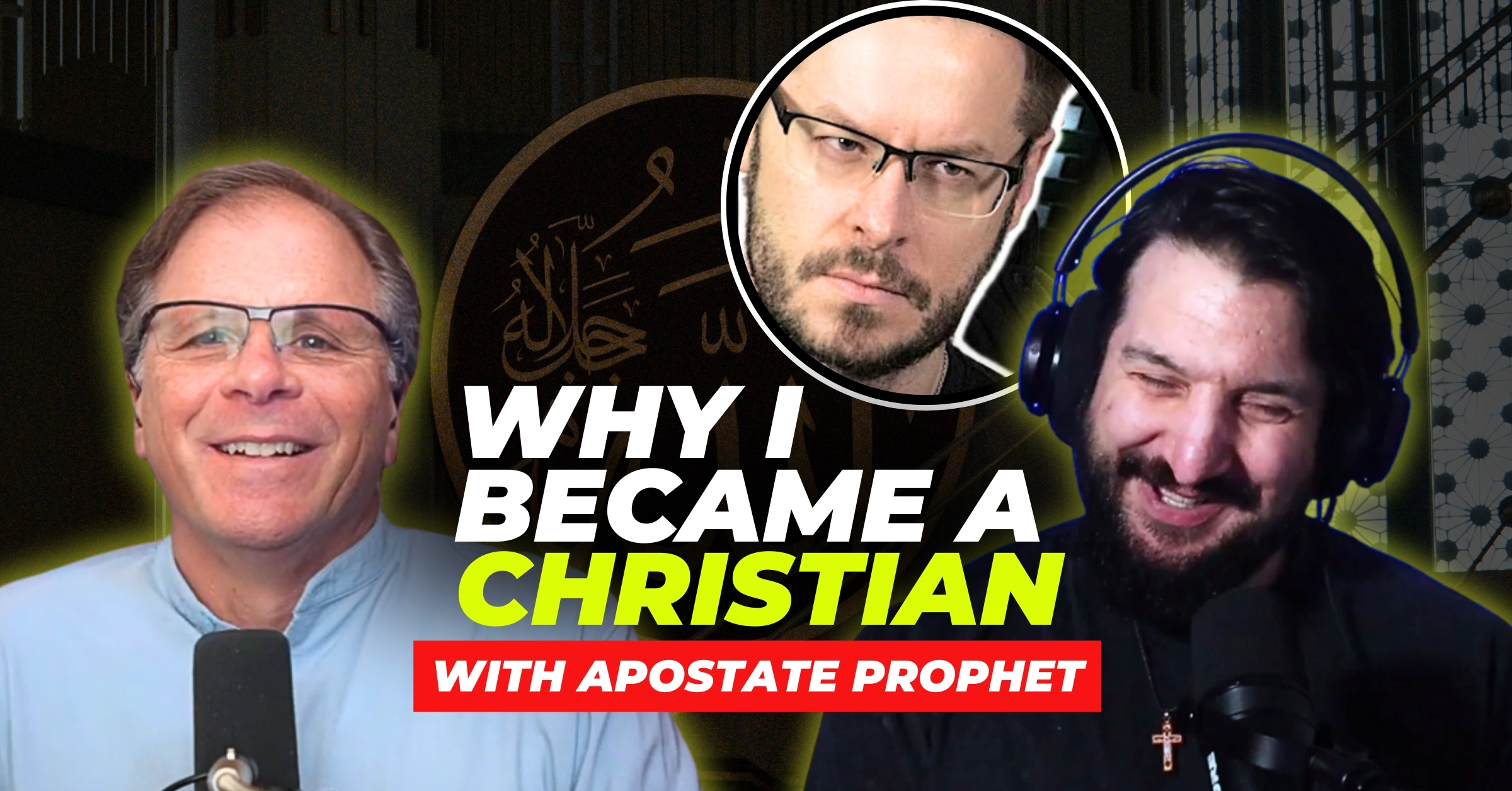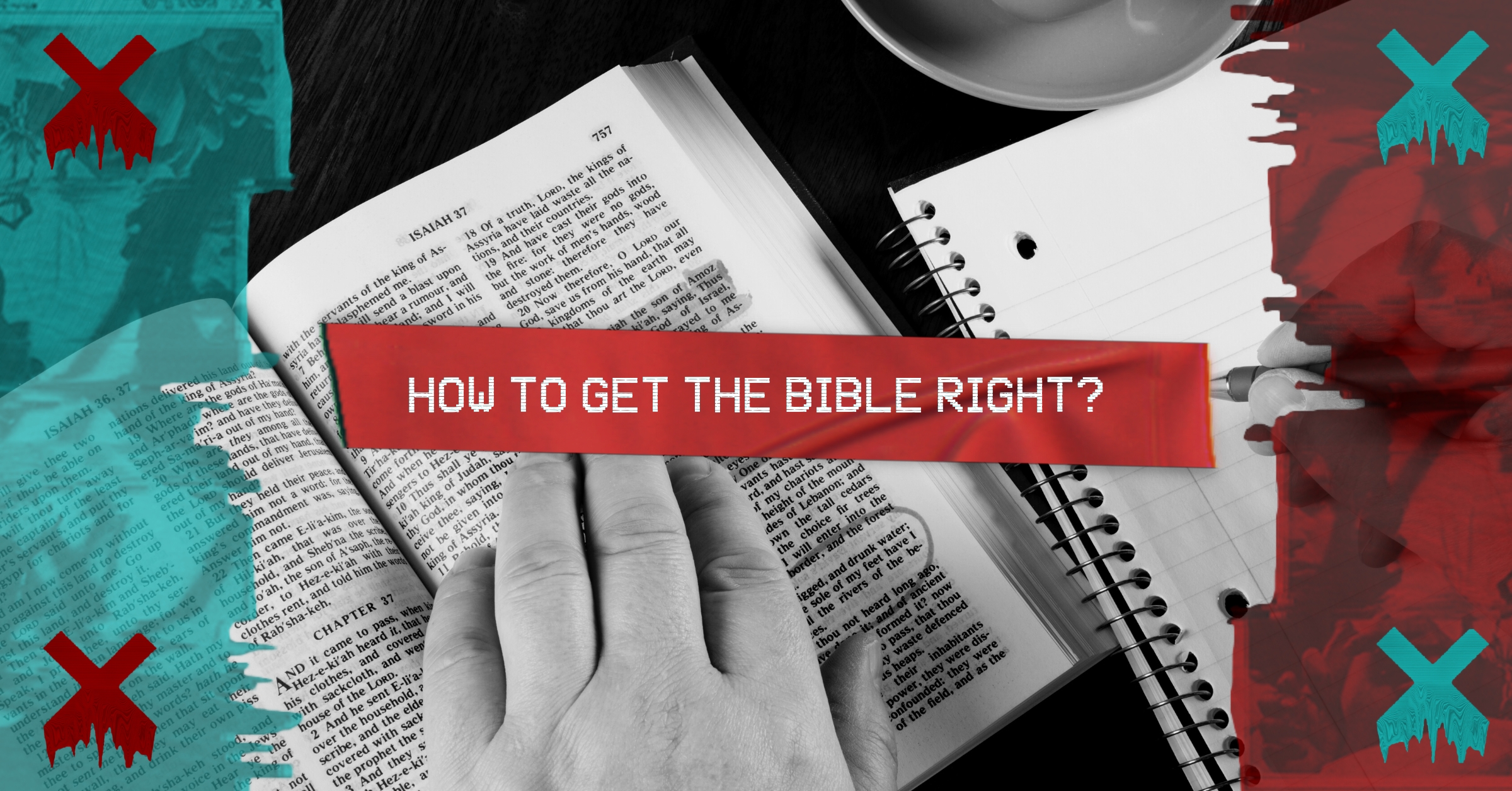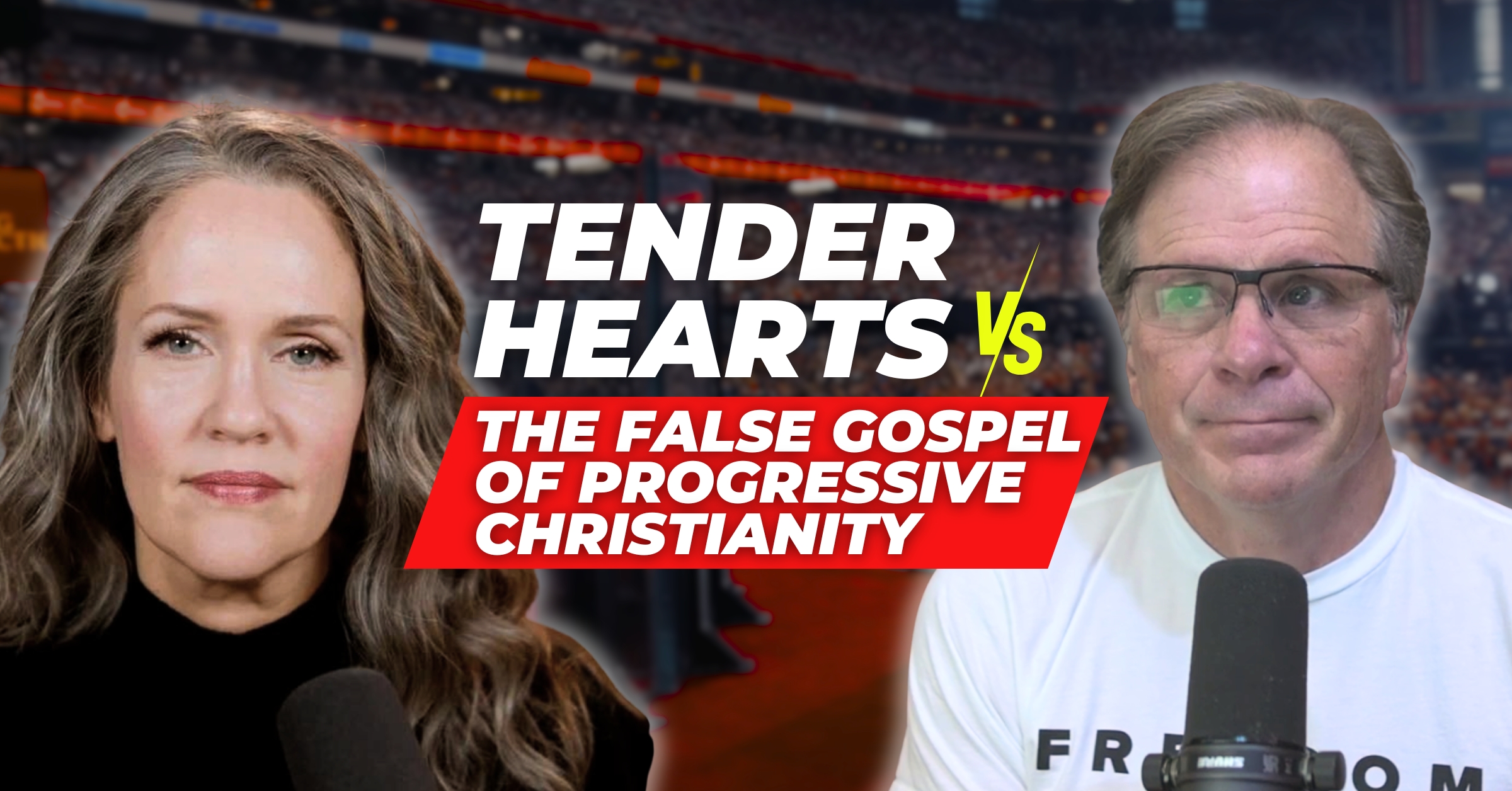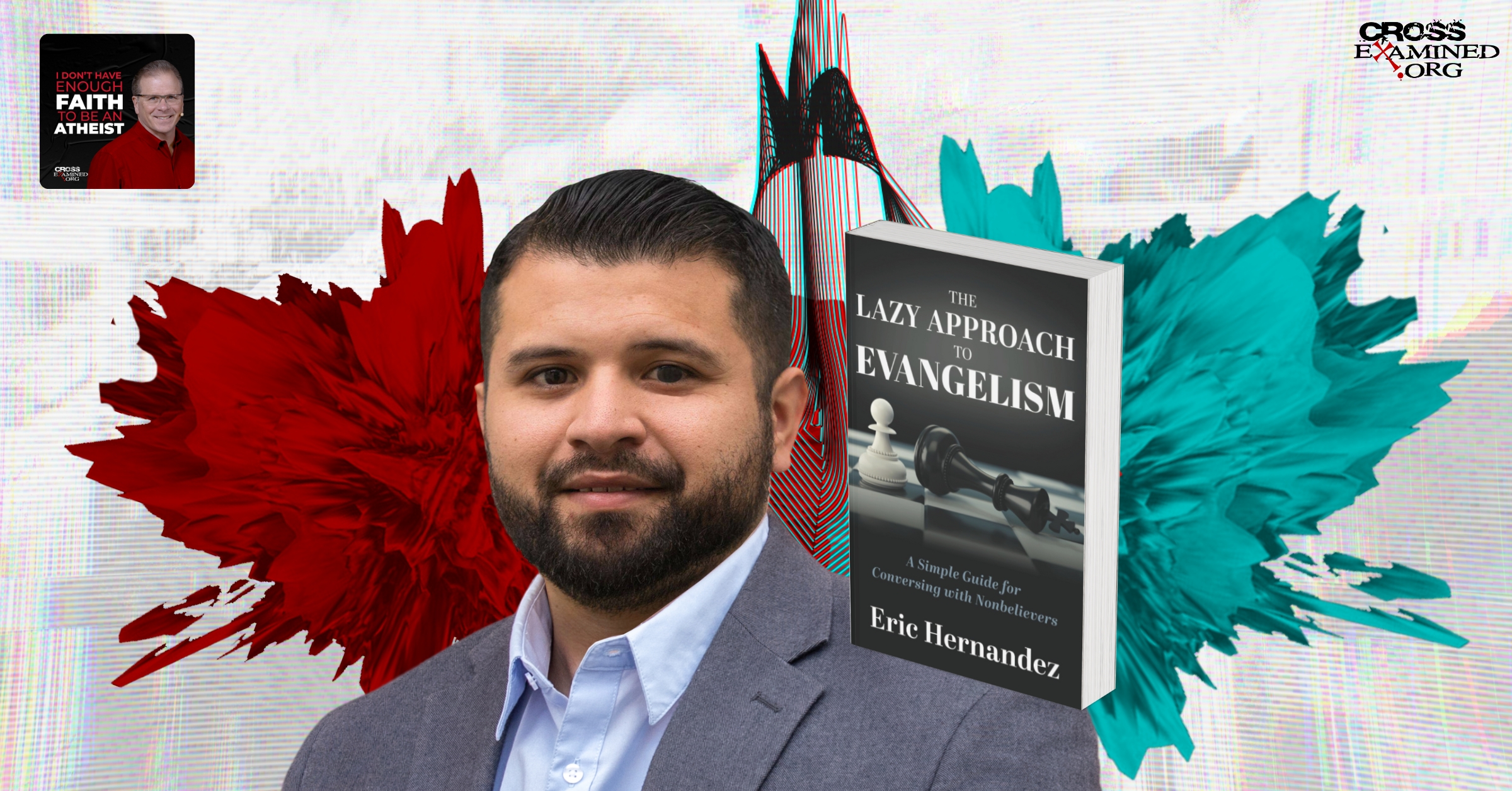A Christian Response to a Viral Deconversion Post
Social media has been a popular place to share deconversion stories over the last few years, and sometimes so many people resonate with those posts that they go viral to some extent (being liked and shared by thousands of people).
There’s one that’s being shared all over Facebook right now, written this week by a lady named Myndee Mack. At the time of this writing, it has 8,000+ likes/loves, 7,000+ comments, and over 3,000+ shares. Clearly, Myndee’s post is compelling to many.
I’d like to offer a response.
While it’s possible Myndee will come across this article, I’m not writing it primarily for her, but rather for the thousands of people who find her post to be a compelling assessment of Christianity and for Christians whose friends are sharing it and want to have a thoughtful response to share. The reason I say I’m not writing it primarily for her is that a one-on-one response would be more relational and personal in nature and tone—like a letter. My purpose here is to help those challenged by her words with a more direct response to the reasoning and theological clarity/accuracy of what she wrote.
“I used to be Christian. I prayed without ceasing. I spent time in the word. I asked. I sought. I knocked until my knuckles bled. My heart was pure. My faith was at least as strong as a mustard seed. I went to Christian elementary school. I prayed the sinners prayer at 6 years old. I would beg my mom to take me to church. I had pages and pages of notes from sermons and from my own studies. I hosted women’s groups. I went to Bible college. I attended church retreats from childhood all the way through young adulthood. I taught at children’s church. I believed I was a sinner in need of a savior, and I accepted Jesus as that savior.”
Myndee sets up her post by making it clear she wasn’t a new Christian rejecting her faith. She wants us to know that she has spent many years involved with the church and presumably seeking God. We have no information on what kind of churches she was part of (certainly something I’d be curious to know about if I met her in person), but the main point here seems to be that she doesn’t want the reader to be dismissive of her.
And I think it’s important to not be.
Don’t be Dismissive
Christians often are dismissive of deconversion stories, saying, “If they walked away, they weren’t truly saved anyway.” Regardless of your view of the assurance of salvation, this is not a helpful response. When people have genuine questions and struggles that they share, we should be ready and willing to offer answers both for them and for those looking on across social media.
That said, I can’t help but note a brief sentence in here that relates to much of what she goes on to write regarding the nature of sin: “My heart was pure.” From a biblical perspective, no one’s heart is “pure.” More on that shortly.
“I was also trapped in a vicious cycle of self hatred, shame, guilt, and repentance. Bible verses such as ‘your heart is deceitful and desperately wicked’ combined with ‘you are fearfully and wonderfully made’ gave me spiritual whiplash.”
Conflicting Scripture?
It’s quite easy to pull any two verses out of the Bible and think they are in conflict if you aren’t looking at them in the context of the whole. The same could be said for virtually any book in the world. In this case, there’s a very important distinction that is missing between being fearfully and wonderfully made (Psalm 139:14) and having a deceitful and wicked heart (Jeremiah 17:9). The fact that we are “fearfully and wonderfully made” is a statement about our design and value: We are not the process of blind, purposeless chance, but rather a purposeful creation who has been given value by our creator—even made in His very image (Genesis 1:27). The fact that we have a “wicked heart” is a statement about the moral choices we are inclined to make. Anyone who is a parent can look at a child and agree that they are extraordinarily valuable and they make bad choices. It’s the same with every human. This isn’t a matter for “spiritual whiplash” once you understand the crucial that distinction between value and morality.
The Vicious Cycle
Furthermore, it’s likely that this conflation of value and morality led to the “vicious cycle” she felt of self-hatred, shame, guilt, and repentance. Knowing that you are inclined toward sin should not cause you to hate yourself. The Bible is clear on our value as image bearers. God so loved His creation that He gave His one and only Son to die for us. We should value ourselves as highly as God values us.
But God is also holy and just. When we sin—transgress a moral law—we rightly feel guilty because we are guilty. If someone intentionally kills an innocent human being, most people would say that person should feel guilty because they did something that is objectively wrong; guilt is not a bad thing, it’s a healthy thing that signifies a functioning conscience. It draws us to repentance, both to the person(s) wronged and toward God.
Therefore, sin, guilt, and repentance are not a vicious cycle. Sin is an ongoing reality in a fallen world, guilt is an appropriate response when we’ve done something wrong (against God’s standards), and repentance leads us back to God. As Christians, we should then accept that Jesus has forgiven us. Self-hatred is not a biblical part of that equation.
“I was taught Romans 8:38-39 and warned of the perils of backsliding all in the same sermon. The thought of somehow committing the unforgivable sin (blasphemy of the Holy Spirit) haunted my mind.”
Beware of Backsliding
Romans 8:38-39 is talking about how nothing can separate us from the love of God in Jesus. In context, Paul is saying that no one can bring a charge against God’s chosen people because it is God who justifies; no matter what happens on Earth, we are “more than conquerors” because nothing can separate us from the Lord. This is a statement about what’s true for those who are saved. While Christians have different views on the assurance of salvation, even for those who believe you can lose your salvation, this is not a contradiction with Romans 8:38-39. If you could “backslide” to a point where you have lost salvation, those verses would simply no longer apply to the unsaved person. It’s a different audience.
“Though I believed [in Christ] with every fiber of my being, I suffered from anxiety, self-loathing and a crippling fear of death. I longed to forge genuine connections with my church family but when I tried to open up about my fears and confusion, I was told I just needed to have more faith. When I had theological questions that made other leaders uncomfortable, I was dismissed if not outright ostracized.”
Just have more Faith!?
If it’s true that Myndee raised her fears and confusions with her church family and was met by dismissal, it’s incredibly sad. Certainly, I’ve seen Christians tell people who have questions to just have more faith, and that’s a terrible response. Biblical faith is confident trust based on who God is. If someone doesn’t understand why there’s good reason to be confident in the existence or identity of God, telling them to just trust more without giving them reason for a confident foundation from which to trust is not the solution.
I only say “if it’s true” because I do think it’s become a bit of a script for many who deconvert to say that no one would or could answer their questions. Did they ask one person? Five? Anyone outside their own church? Read books? There’s no way to know for any individual, but if you’re genuinely seeking truth, you should be seeking answers in many places. There are numerous resources available.
“My hunger and thirst for righteousness went unquenched. Those who claimed to be the hands and feet of Jesus showed me how they weaponized the Bible for their own gain.”
Weaponized Bible
It’s impossible to know what she has in mind about weaponizing the Bible, but today people often claim the Bible is being weaponized any time a Christian shares truth people don’t like. For example, if you say that God made two genders (and you can’t change those genders), you will be accused of “weaponizing the Bible.” If the Bible is truly God’s Word, that’s not using it as a weapon. It’s sharing truth. (Of course, truth should be shared in a gracious way.)
However, it’s possible Myndee grew up in a church that truly did weaponize the Bible in an abusive sense. If that’s the case, again, it’s awful. However, we have to recognize that we can’t blame God when people misuse His Word. We must seek to know if the Bible is true regardless of those abuses.
“My traumas and mental health issues were blamed on the devil, and I was made to feel as though I wasn’t Christian enough because of my struggles that, ironically, stemmed mostly from Christian teachings.”
Mishandling Mental Health
From a biblical perspective, mental health challenges can be part of both a spiritual and physical battle. There’s no way to diagnose this particular situation without knowing the specifics (and even if you knew some specifics, no one could definitively claim that x part is spiritual and y part is physical). But if her struggles were truly stemming from her response to “Christian teachings,” there are a couple of points that should be made.
First, how we feel in response to reality doesn’t determine what is reality. If we feel traumatized by the idea of hell, for example, that has no bearing on whether hell is real. So claiming trauma from biblical teachings is not inherently a statement about whether those teachings are true. Christians shouldn’t feel traumatized by a theologically accurate understanding of God’s judgment (there is no condemnation for those who are in Christ Jesus—Romans 8:1), but however a person does feel does not determine what’s true.
Second, sometimes people may feel the kind of trauma she’s talking about in response to a misunderstanding of biblical truth. If she felt self-hatred (as she mentioned previously) because she didn’t have a theologically accurate understanding of the value-morality distinction, that’s not the fault of what the Bible teaches. It’s a tragic misunderstanding on her own part that was never clarified by further study or other Christians.
“I was doing my best to maintain a good, close, loving relationship with the god of the Christian Bible. I wanted nothing more than that. To abandon myself. To die so he might live in me. What I was actually doing was denying my own compassion, my own intuition, which was objectively more righteous than a God who murders entire civilizations (the children too) and sends his own creation to hell for what can only be described as a design flaw. One the designer, the creator, is ultimately responsible for.”
More Righteous than God!?
This is quite the statement. She claims that her own compassion and intuition (moral intuition, presumably) are more righteous than that of the biblical God. She even states that this is objectively so! Yet where does she get the objective basis for her morality if God doesn’t exist? If there is no God, the universe is the product of blind, purposeless chance, and there is no such thing as an objective right or wrong. Without a higher-than-human moral authority and lawgiver, there is no objective moral law. The compassion she praises herself for is meaningless in such a world—it would simply be a function of evolutionary survival mechanisms, not of an actual moral nature (and therefore would not be praiseworthy!).
The same goes for the moral intuition she claims. If God doesn’t exist, that intuition is an evolutionary delusion brought upon the human species by time and chance. There is no objective morality to have moral intuitions about if there is no God. She claims her morality is objectively superior, but she has no objective standard if God doesn’t exist. And if a god does exist but hasn’t revealed himself, she still can’t claim to have knowledge of what objective standards this hypothetical god put in place—he didn’t reveal anything!
She then says that God “murders” entire civilizations. First, this isn’t morally wrong (as she clearly assumes) if there is no moral law giver. Second, she misses the distinction between murder (the unjustified taking of innocent human life) and killing (any taking of life). Most people recognize that killing in self-defense is not considered murder. Some would say that killing in the context of a just war isn’t either. And some would say neither is the death penalty.
Not all killing is murder. For God to murder people would mean He was unjustified in taking their lives. When God commands the killing of people in the Bible, however, it’s clearly because of judgment that He, as the all-knowing and perfectly just God of the universe, had the knowledge, nature, and right to make.
Free Will, a Design Flaw?
She then goes on to again confuse creation with our ability to make moral choices. Free will is a feature, not a bug, in God’s design of the human being. If we didn’t have the ability to make morally significant choices, we would be robots incapable of being in relationship with Him, which was His purpose in our creation. If we use our free will to reject God and His offer of forgiveness for sin, we will be subject to judgment because He is a holy and just God. Just as it’s not loving to let criminals go free in earthly justice systems, it’s not loving to let moral law breakers (every human) to go free in the “cosmic” justice system. But in God’s love, He paid the penalty for us. We simply have to accept His gift of Jesus’s sacrifice on the cross.
“Then one day, I could deny and ignore it no longer. The Christian god delights in violence. The Christian church caused me more harm than good.”
If you read the Old Testament, God does not delight in violence. He is a patient God who seeks the heart and repentance of His people.
Also, harm and good are two terms that require an objective basis for meaningful definition. A person’s subjective feelings of what is harmful or helpful, good or bad, and right or wrong do not define what is objectively true.
“In getting away from it, I found the peace that passes all understanding. I am now immersed with love, with grace, with joy. I have found freedom in what others call “witchcraft”. I don’t worship the moon or my crystals. My Tarot cards are not a god to me. I respectfully utilize these things to help me connect to myself and to this beautiful world I get to be a part of and share with my fellow humans. I don’t care if Tarot or Reiki or Buddhism or Christianity is real. I care if it is helpful.”
Utility over Truth
This says everything. As I have pointed out multiple times here, nothing she has said so far has had anything to do with what is true or real. A skeptical reader might say that “of course” she had already decided that Christianity is false, and she’s just telling us more about her journey—that it goes without saying that truth mattered. But that’s simply not the case for many people today, and she says it explicitly here: “I don’t care…if Christianity is real.” The motto of so many people who have deconstructed or deconverted is what they subjectively find helpful. The nature of truth is rarely considered.
If you’re reading this and don’t know what you believe, please consider that what you find helpful may or may not be true, and believing what is false but subjectively helpful in your own estimation can have serious consequences for your life now and for eternity. I might find it helpful to my peace of mind if someone came and told me that I will never have a car accident, so I can drive however I want. But if that’s not true, it doesn’t matter how much peace and joy the falsity provided. I’ll die in a car accident if I’m not driving with care.
What’s real matters.
About that Witchcraft . . .
Additionally, if the “witchcraft” she does has an actual consequence in the world because she is tapping into the demonic, she should recognize that this, indeed, is real. And if witchcraft is real, that means the supernatural is real. And if the supernatural is real, that should point her to the existence of God and ultimately back to the Bible, which explains exactly who is behind the witchcraft (Satan) and the role he plays in reality.
On the other hand, if the “witchcraft” does nothing, there’s no reason to do it at all. But I’m guessing she finds it appealing because witchcraft gives a person methods for attempting to exhibit control over the universe. If she struggled with feeling a lack of control under the sovereignty of a God she believed to be murderous and horrible, it would make sense she would try to regain control in her next belief system. But again, if it actually does something, that should point her back to a supernatural worldview in which God exists.
“I don’t care what your doctrine is, I care what kind of impact you make on the world around you. I care more about your mental and emotional health than whether or not you believe the ‘right’ thing.”
Truth-Neutral Living
Well, you might not care about what people believe, but again, this has no bearing on what’s true about the world. If there’s a God who created this incredible universe and every human being, then He is the only one with the rightful authority to say what matters and what doesn’t. The Bible is very clear from beginning to end that what people believe about God matters. There are right and wrong beliefs, and they have significant consequences. And when people do live according to right beliefs about who God is, who we are, what our relationship is, what’s required of us, and more, that flows into a true peace that surpasses all understanding.
This doesn’t mean a Christian won’t have any mental and emotional struggles, however. Counseling and sometimes medication are important for dealing with the kinds of challenges we encounter in this world. That’s a different question than whether or not doctrine matters.
“If being on the inside of Christianity helps you be a better, more whole human, I want that for you. I want whatever brings peace to your soul. Despite life’s turmoil, my soul is more at peace and I am a better human, both internally and externally, outside of Christianity.”
You do You
Again, it doesn’t matter what you want for someone. See answer above—the same logic applies. It’s what God wants for us. It’s how God defines what is better or worse. It’s who God thinks we are when we are most wholly human.
You might use your own definition of “better” to conclude you are a better human outside of Christianity, but if God disagrees, you’re in an infinitely worse place.
“Outside of Christianity, there is no more “us vs. them” or “wheat vs. chaff” for I see that we are all one under this universe. We are all made of stardust, here for a short time and instead of wasting my life dying to myself to try to please an angry, jealous god whose wrath could not be appeased outside the brutal murder of his own son, I spend my time building genuine connections and embodying love.”
If there is no God, she’s right that we’re made of material stuff alone, with no inherent value, and with no objective meaning of life. But if that’s truly the picture of the world we live in, she has no objective basis for claiming God is morally wrong, her “genuine connections” are with other groups of stardust with no actual value, and the love she is “embodying” is just a bunch of chemical reactions. Those are consistent truths with the worldview that we’re all just stardust and nothing more.
But it’s important to note that she simultaneously misconstrues the claims of Christianity here. Again, murder is the unjustified taking of an innocent human life. If you understand Christian doctrine, you know that the Trinity is God the Father, the Son, and the Holy Spirit—three persons, one nature. Jesus is God. He laid down His own life (John 10:17-18). Out of His love for us, He took the punishment for sin and offered us eternal life. Her description here is a complete mischaracterization and misunderstanding of this beautiful truth from our all-loving and perfectly just God.
“If you are worried about my eternal state, don’t be. If the god of the Bible is the loving god Christians claim he is, then [He] will meet me where I am. He will allow me to walk the path that helps me be a better human and live a life without anxiety and self-loathing. That god will understand my plight and accept my inability to accept a doctrine that has caused me irreparable harm. And if you think the god you believe in will say to me ‘depart from me, I never knew you’ when my time on earth is through, that’s not a god I’d want to spend eternity with anyway.”
It’s quite presumptuous to assume that the God of the universe will “meet you where you are,” when by that you mean He’ll accept whatever decisions you make as right for you. If He has already given us a Bible to tell us what we need to know so that we can meet Him where He requires, that’s the standard to which we’ll be held. The Bible explicitly and repeatedly tells us not to be anxious (e.g., Matthew 6:27). And as I already explained, we aren’t to be self-loathing.
It’s truly sad that the theological misunderstandings she has about God have led her to hate Him so much that even if He were real and the Bible were true, she claims she wouldn’t want to be with Him anyway. Theology matters. It’s the difference between someone longing to be with the God who loves them and someone longing to reject the God whom they hate based on an errant understanding of His Word.
All of this begs the question of what is actually true. Unfortunately, the most viral social media posts are rarely about seeking truth. They’re about people’s experiences and emotional responses to those experiences. Experiences and responses aren’t unimportant; they’re part of life. But they don’t determine what’s true. That’s why it’s so important for Christians to have an understanding of apologetics (the case for and the defense of the truth of Christianity). In a world that no longer even asks what’s true, we have to be able to show that’s still the pertinent question…and then demonstrate the Bible is truly God’s Word.
Recommended resources related to the topic:
Debate: What Best Explains Reality: Atheism or Theism? by Frank Turek DVD, Mp4, and Mp3
Is Original Sin Unfair? by Frank Turek (DVD, Mp3, and Mp4)
Stealing From God by Dr. Frank Turek (Book, 10-Part DVD Set, STUDENT Study Guide, TEACHER Study Guide)
Is Morality Absolute or Relative? by Frank Turek (Mp3/ Mp4)
When Reason Isn’t the Reason for Unbelief by Dr. Frank Turek DVD and Mp4
___________________________________________________________________________________________________________________________________________________
Natasha Crain is a blogger, author, and national speaker who is passionate about equipping Christian parents to raise their kids with an understanding of how to make a case for and defend their faith in an increasingly secular world. She is the author of two apologetics books for parents: Talking with Your Kids about God (2017) and Keeping Your Kids on God’s Side (2016). Natasha has an MBA in marketing and statistics from UCLA and a certificate in Christian apologetics from Biola University. A former marketing executive and adjunct professor, she lives in Southern California with her husband and three children.
Original Blog Source:https://bit.ly/3wt458E



